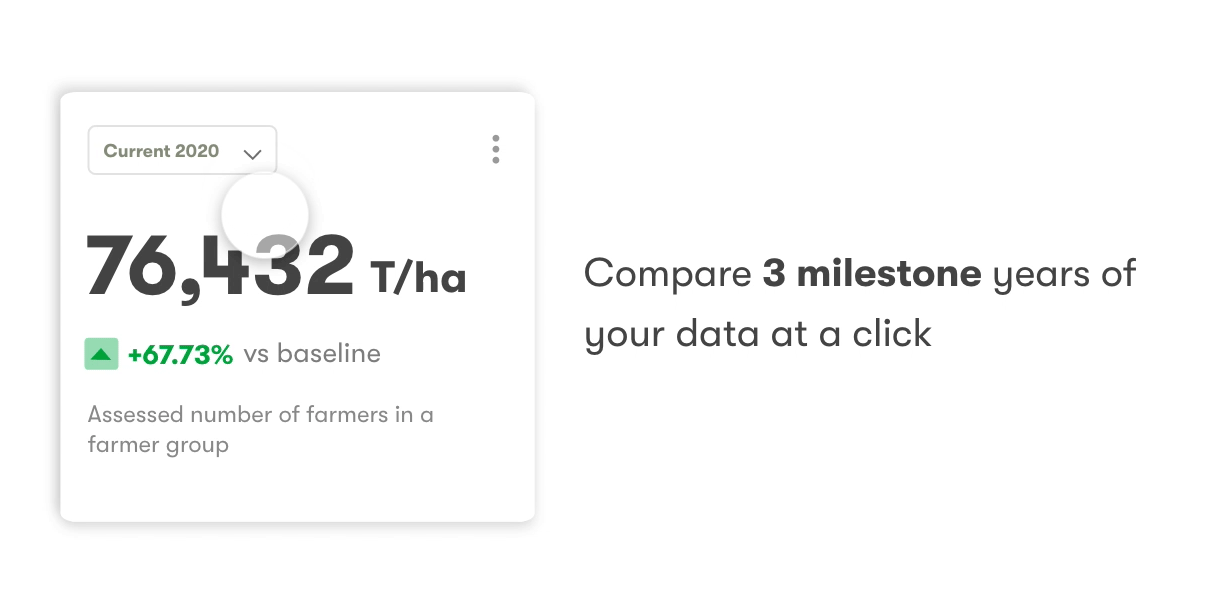

PROSPEROUS FARMERS & FOOD SYSTEMS
ECONOMIC OPPORTUNITY
Many smallholder farmers struggle with low yields, uncertain weather, poor infrastructure and changes in global market pricing. As a result, some operate a fine line between success and failure. They can struggle to cover all their expenses, let alone grow their business.
Improving economic opportunities for farmers is critical to building a more sustainable supply chain and contributes towards the UN’s Sustainability Development Goal 1 and 2, which aim to end poverty and hunger. Economic viability can be improved through farming skills that increase yield and quality, business training, premium payments, and 0% interest loans.
AtSource+ allows customers to track the metrics in place to monitor economic opportunities provided to the farmer groups they source their products from.
METRICS
AtSource+ metrics related to this material area include:
Average yield of a given farmer group
Number of farmers trained in Good Agricultural Practices and the average productivity change for those farmers once they have completed the training
Premium paid and loans provided to a farmer group
Volumes of seeds, seedlings and fertiliser have distributed to farmers
The AtSource dashboard also allows views on metric changes over time to understand the impact the Olam programmes have on farmers on the ground. More info on metrics? Read here
IMPACT STORIES
BETTER WITH BEES: MAKING MORE CASH FROM CASHEW
Beekeeping has an important role in generating and expanding the income of small-scale cashew farmers. Hives are placed in the orchards in return for bee pollination services, not only boosting cashew nut yields, but the farmer’s income also benefits from the sale of honey and wax.
Read moreTERMS AND PRIVACY
See how tiles work

Find out more
How can we help you?
<p>Interested to know more about AtSource?</p>
Please type additional details here
Thank you
Thank you for your suggested Action. We will be in touch with you very shortly.
Thank you
Thank you for your feedback. We will be in touch with you very shortly.
Thank you.
Thank you for contacting us. We will be in touch with you shortly.
Whoops
Sorry an error occurred submitting your feedback. Please try again later.